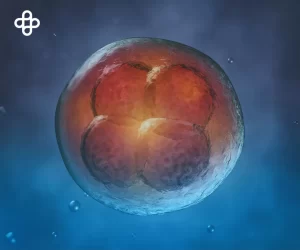Amniotic fluid for necrotizing enterocolitis. The injection of these stem cells significantly reduces inflammation and promotes greater self-renewal of intestinal tissue, according to a study published in the GUT journal.
Amniotic Fluid: A Potential Treatment for Necrotizing Enterocolitis
Researchers at Great Ormond Street Hospital Children’s Charity in London, UK, have used amniotic fluid stem cells to restore damaged intestinal structure and function in rodents. Their findings open a promising therapeutic avenue for necrotizing enterocolitis (NEC), a severe intestinal inflammation affecting newborns.
Breastfeeding and probiotics can lower the risk of NEC. Surgery remains the only treatment for infants suffering from this condition. However, surgical intervention carries significant risks, including mortality and complications. Some infants require continuous parenteral nutrition (intravenous feeding) or even intestinal transplantation.
To explore alternative treatments, scientists administered amniotic fluid stem cells to one group of NEC-affected mice, while another group received bone marrow stem cells extracted from the femur.
Results
The mice injected with amniotic fluid stem cells exhibited significantly higher survival rates one week post-treatment than those receiving bone marrow stem cells.
Using micro-MRI imaging, researchers observed a substantial reduction in intestinal inflammation, fewer dead cells, enhanced self-renewal of intestinal tissue, and overall improved intestinal function.

Congenital Malformations
After being injected into the intestine, these stem cells migrate to the intestinal villi—tiny, finger-like projections that extend from the intestinal wall lining to absorb nutrients into the bloodstream.
Rather than directly repairing damaged tissue, these cells release growth factors that stimulate intestinal progenitor cells. This process helps to reduce inflammation and promote the formation of new villi and other intestinal structures.
“This is the first time we have demonstrated that amniotic fluid stem cells can repair intestinal damage,”. Stated Dr. Paolo De Coppi, the study’s lead researcher. He remains hopeful that “in the future, these cells could be widely used for other treatments, especially in congenital malformations.”

A Promising Future: Amniotic Fluid as a Treatment for Necrotizing Enterocolitis
Real-world applications of this research continue to advance. Scientists from the University of Florence have reported promising results in treating necrotizing enterocolitis (NEC) using amniotic fluid stem cells. Their study highlights key knowledge gaps that must be addressed before translating this therapy into clinical practice.
Future research must confirm the therapeutic benefits of this strategy for newborns suffering from NEC through further preclinical trials. This review provides a valuable framework for the clinical application of amniotic fluid stem cells. And their derivatives as an innovative treatment for NEC.
Would you like to learn more about the fascinating world of stem cells? Check out our article “What Are Stem Cells?“





